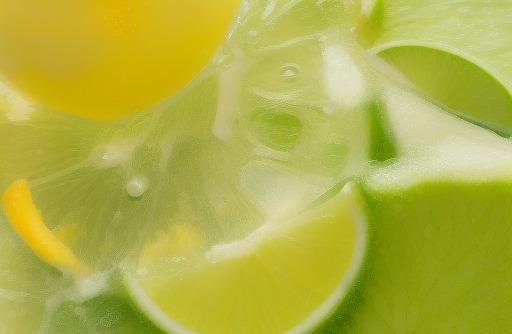- You are here:
- Home »
- Food Substitutes
- » Best Substitutes For Lime Juice
Best Substitutes For Lime Juice

Lime juice is a popular ingredient in many recipes, providing a tangy, acidic flavor that can brighten up a dish. However, there may be times when you don’t have any lime juice on hand or simply want to try something different. In such cases, having a substitute for lime juice can come in handy. Whether you’re looking for a citrusy replacement or a non-acidic alternative, we’ve got you covered. In this article, we’ll explore the best substitutes for lime juice and how to incorporate them into your cooking.
Key Takeaways
- Lime juice is a tangy and acidic ingredient that adds a refreshing flavor to dishes.
- There are several substitutes for lime juice, including lemon juice, vinegar, citric acid, and other citrus juices.
- When choosing a substitute for lime juice, consider the flavor profile and acidity level needed for your recipe.
- Different substitutes may work better in specific types of dishes, such as desserts or savory dishes.
- Experiment with different substitutes to find the one that best suits your taste preferences and the dish you’re making.
Why You Need A Substitute For Lime Juice
Having a substitute for lime juice is essential when you don’t have any on hand or need an alternative flavor profile. Lime juice adds a unique tanginess and acidity to dishes, which can be difficult to replicate with other ingredients. Additionally, some individuals may have dietary restrictions or allergies that prevent them from consuming lime juice. In these cases, finding an appropriate substitute allows them to enjoy dishes that call for lime juice without compromising flavor or health concerns.
Types Of Substitutes For Lime Juice

There are several types of substitutes for lime juice that you can choose from. These alternatives vary in flavor profile, acidity level, and even the form in which they are available. Here are some common substitutes for lime juice:
-
Lemon Juice: One of the most popular substitutes for lime juice is lemon juice. Both lime and lemon belong to the citrus family and share similar flavor profiles. Lemon juice has a tangy and acidic taste, making it a suitable replacement for lime juice in many recipes.
-
Vinegar: Another substitute for lime juice is vinegar. Vinegar is highly acidic and can provide a similar tanginess to your dish. However, vinegar may have a stronger flavor and aroma than lime juice, so it’s important to use it in moderation and choose a type of vinegar that complements your recipe.
-
Citric Acid: If you’re looking for a non-liquid substitute for lime juice, citric acid is an excellent option. Citric acid is a natural acid found in citrus fruits, including limes and lemons. It can be purchased in powdered form and easily dissolved in water or other liquids to provide acidity.
-
Other Citrus Juices: If you want a different citrus flavor, you can experiment with other citrus juices as substitutes for lime juice. Orange juice, grapefruit juice, and even tangerine juice can bring a unique twist to your recipes while providing the necessary acidity.
-
Lime Zest: In some recipes, the flavor of lime zest can be a suitable substitute for lime juice. Lime zest refers to the outermost part of the lime’s peel, which contains aromatic oils. It adds a bright, zesty flavor to dishes without the acidity of lime juice.
Best Substitutes For Lime Juice
Now that we’ve covered the different types of substitutes available let’s explore the best substitutes for lime juice:
1. Lemon Juice
Lemon juice is the top choice for substituting lime juice due to its similar flavor profile and acidity level. It provides a tangy and bright taste that is comparable to lime juice. Use an equal amount of lemon juice as the recipe calls for lime juice. However, keep in mind that lemon juice may have a slightly different taste, so adjust the amount to your preference.
2. Vinegar
Vinegar is an excellent substitute for lime juice when you need a tangy and acidic flavor. Depending on the recipe, you can use either white vinegar or apple cider vinegar. Start with a smaller quantity than what the recipe calls for and gradually increase it to avoid overpowering the dish with vinegar’s strong flavor. Keep in mind that vinegar may alter the taste of the dish slightly, so it’s best used in recipes where the flavor of vinegar complements the other ingredients.
3. Citric Acid
If you prefer a non-liquid substitute, citric acid is a great option. It is highly concentrated and can be used sparingly to achieve the desired acidity level in your dish. Dissolve a small amount of citric acid in water or any liquid called for in the recipe, then add it according to taste. Be cautious with citric acid as it can become too acidic if used in excess. Start with a pinch and adjust as needed.
4. Orange Juice
For a sweeter and less acidic substitute, orange juice works well in recipes that require lime juice. Orange juice provides a mild citrus flavor and adds a hint of sweetness to the dish. However, it’s important to note that orange juice is less acidic than lime juice, so consider adding a touch of lemon juice or vinegar to increase the tanginess if necessary.
5. Grapefruit Juice
Grapefruit juice is another citrus substitute for lime juice that adds a unique and slightly bitter flavor. It can enhance the taste of various dishes, especially those that benefit from a slightly bitter note. When using grapefruit juice as a substitute, start with a smaller amount and adjust to your taste preference.
6. Lime Zest
When lime juice is primarily used for its flavor rather than its acidity, lime zest can be an excellent substitute. Lime zest contains aromatic oils that bring a bright, citrusy flavor to dishes without the tanginess. Use approximately half the amount of lime zest as you would lime juice. Keep in mind that lime zest adds a slightly different taste, so adjust accordingly to your recipe.
These substitutes offer similar taste profiles and varying levels of acidity and sweetness, allowing you to choose the best option for your recipe’s flavor balance.
Choosing The Right Substitute For Lime Juice
When choosing a substitute for lime juice, consider the recipe, flavor profile, and acidity level needed. Some recipes rely on the distinct flavor of lime juice, while others require its acidity. Understanding the role lime juice plays in the recipe will help you select the most suitable substitute.
Here are a few factors to consider when choosing a substitute:
-
Taste: Consider whether you want a flavor similar to lime or are open to experimenting with different citrus flavors. Lemon juice closely resembles lime juice, while orange juice and grapefruit juice offer sweeter alternatives.
-
Acidity: Lime juice provides a level of acidity that may be crucial for certain dishes. If acidity is a significant factor, choose a substitute that matches or adjusts the acidity level accordingly. Vinegar and citric acid are highly acidic substitutes that can replicate or enhance the tanginess of lime juice.
-
Recipe Compatibility: Different substitutes work better in specific types of dishes. For example, lemon juice is versatile and can be used in a wide range of recipes, while citrus juices like orange or grapefruit may pair better with certain fruits or desserts. Consider whether the substitute will complement the other ingredients in the recipe.
Remember, experimenting with substitutes can be a fun way to discover new flavor combinations. Feel free to adjust quantities and even mix different substitutes to create a unique taste that suits your palate and the dish you’re preparing.
Pro Tip: When using a substitute for lime juice, start with a smaller quantity and adjust to taste. It’s easier to add more substitute than to dilute an overpowering flavor. Gradually increase the substitute until you achieve the desired taste.
Cooking With Substitutes For Lime Juice
Now that you’ve chosen the right substitute, it’s time to start cooking. Here are some tips for using substitutes for lime juice in your recipes:
-
Measure Accurately: Whether you’re using lemon juice, vinegar, or any other substitute, measure it accurately to ensure the right balance of flavors. Use measuring spoons or a kitchen scale if necessary.
-
Adjust the Quantity: Depending on the substitute you choose, you may need to adjust the quantity to achieve the desired taste. Start with a smaller amount and add more gradually as needed.
-
Consider Texture: Keep in mind that lime juice not only adds acidity but also contributes to the overall texture of a dish. If a recipe calls for lime juice to tenderize meat or marinate seafood, consider using a substitute that provides similar tenderizing or marinating properties.
-
Experiment with Flavors: Substituting lime juice opens up opportunities to experiment with different flavors. For example, using grapefruit juice can lend a unique bitterness, while lemon juice can provide a slightly different citrus twist. Embrace the chance to create new flavor profiles by combining different substitutes or using them in unconventional recipes.
With these tips in mind, you can confidently substitute lime juice in your recipes while maintaining the desired taste and texture.
Recipes Using Substitutes For Lime Juice
Now that you know how to substitute lime juice, here are a few recipes where you can try out these alternatives:
-
Lemon Garlic Shrimp:
- Replace lime juice with an equal amount of lemon juice in a classic lemon garlic shrimp recipe. The lemon juice will add a tangy and bright flavor to the dish, similar to lime juice.
-
Orange Glazed Chicken:
- Use orange juice instead of lime juice to make a flavorful glaze for chicken. The orange juice will add a touch of sweetness while still providing the necessary acidity.
-
Grapefruit Avocado Salad:
- Substitute lime juice with grapefruit juice in a refreshing avocado salad. The grapefruit juice will bring a unique bitter-sweet flavor that pairs well with the creamy avocado.
-
Citric Acid Guacamole:
- Dissolve a small amount of citric acid in water and add it to your favorite guacamole recipe. The citric acid will provide the acidity needed to balance the rich avocado flavors.
Feel free to get creative and experiment with these substitutes in various recipes to discover new taste combinations and dishes you’ll love.
Storage And Shelf Life Of Substitutes
When using substitutes for lime juice, it’s essential to consider their storage and shelf life. Here are a few guidelines:
- Lemon juice: Freshly squeezed lemon juice can be stored in an airtight container in the refrigerator for up to a week. Store-bought lemon juice may have a longer shelf life, so follow the manufacturer’s instructions.
- Vinegar: Vinegar has a long shelf life and can be kept in a cool, dark place for an extended period. Check the label for specific storage instructions.
- Citric acid: Store citric acid powder in a tightly sealed container in a cool, dry place. It can last for several years if stored properly.
- Citrus juices: Freshly squeezed orange juice or grapefruit juice should be consumed immediately or refrigerated for a maximum of three days.
Always check the freshness and quality of any substitute before using it in your recipes. If the substitute has been sitting for a long time or doesn’t taste fresh, it may not provide the desired results.
Conclusion
Having a substitute for lime juice can be a lifesaver when you need to adapt recipes or don’t have lime juice on hand. Lemon juice, vinegar, citric acid, and other citrus juices offer viable alternatives that can add the necessary tanginess and acidity to your dishes. When choosing a substitute, consider the flavor profile, acidity level, and recipe compatibility. Experiment with different substitutes to find the one that best suits your taste preferences and the dish you’re making. With these options and tips, you can confidently substitute lime juice in your favorite recipes without compromising on flavor or texture.
FAQS
What Are Some Alternative Citrus Fruits That Can Be Used As A Substitute For Lime Juice?
Lemon juice, grapefruit juice, and orange juice are all viable substitutes for lime juice. Each of these fruits provides a similar acidic taste and can be used in a variety of recipes calling for lime juice.
Can Vinegar Be Used As A Substitute For Lime Juice In Recipes?
Yes, vinegar can be used as a substitute for lime juice but it is important to note that the taste will be slightly different. White vinegar or rice vinegar can be used as a replacement, but it is recommended to use less than what the recipe calls for as the taste can be overpowering.
What Can Be Used As A Lime Juice Substitute For Those Who Have A Citrus Allergy?
For individuals who have a citrus allergy, apple cider vinegar or rice vinegar can be used as a substitute for lime juice. These alternatives offer the acidity and tanginess that lime juice provides without the citrus component.
Is There A Non-acidic Substitute For Lime Juice?
Yes, in recipes where a non-acidic substitute for lime juice is required, there are a few options available. Some examples include unsweetened coconut milk, watermelon juice, and pomegranate molasses.
Can Lime Zest Be Used As A Substitute For Lime Juice In Recipes?
While lime zest can be used to provide a citrus flavor in recipes, it should not be used as a direct substitute for lime juice. Lime zest only provides the fragrance and flavor of the lime, whereas the juice provides the acidity required for various recipes.
Sources
About the Author Jenny
I'm Jenny, a housewife with an unwavering passion for food. My culinary journey began with my grandmother's kitchen, and it's now a full-fledged food blog. I've turned my love for cooking into a creative outlet, sharing recipes and stories with a global community of fellow food enthusiasts. It's proof that being a housewife can also mean pursuing your passions and savoring life's delectable moments.
